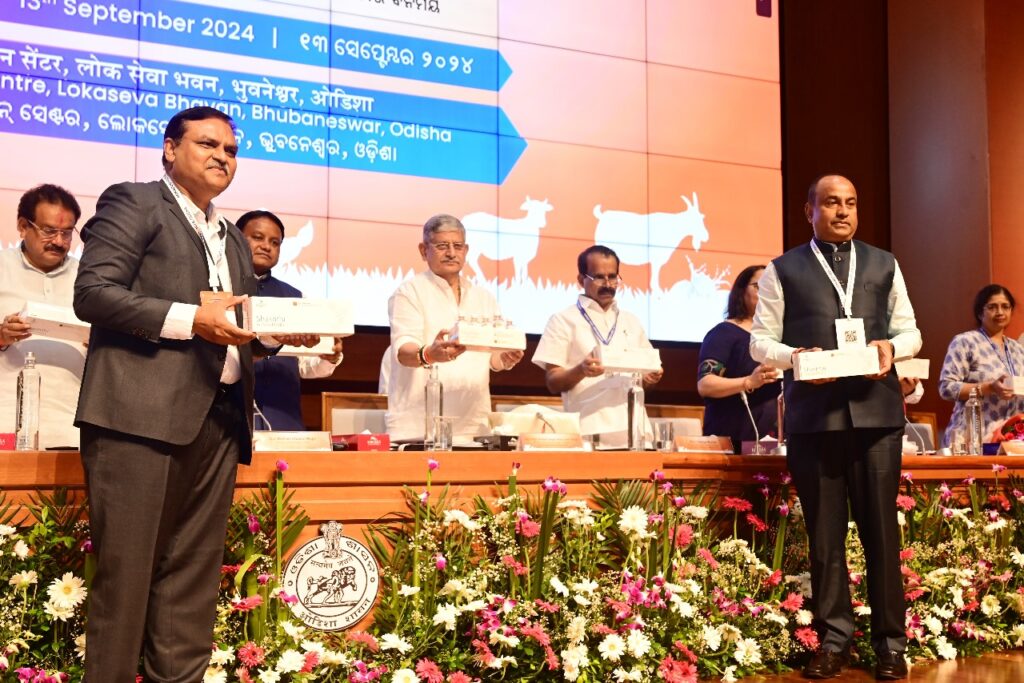Bhubaneswar, 13th Sept 2024 – Indian Immunologicals Limited (IIL), a leading vaccine manufacturer, has announced the launch of “Shashthi” an indigenous In-Vitro Fertilization (IVF) media developed in collaboration with National Dairy Development Board (NDDB). This launch of IVF media would make the IVF technology more affordable to farmers, reducing costs and enhancing the farmer-centric model of animal husbandry and dairy development. This will promote self-reliance and reduce dependency on imported media and aligns with the vision of “Atmanirbhar Bharat”.

In vitro fertilization (IVF) is a significant advancement in reproductive technology. IVF involves fertilizing an egg in a controlled laboratory environment and selecting the healthiest embryos for transfer. During the last couple of years, Ovum Pick Up and In vitro Embryo Production (OPU-IVEP) have emerged as a replacement for the in vivo embryo production technique. It is envisaged that using this technology to multiply the superior bovine germplasm can change the face of dairying in India.
Presently, around 8,000 to 10,000 embryos are transferred annually in India, leading to the birth of approximately 2,000 to 2,500 calves, benefiting same number of farmers. However, with increasing coverage of IVF and generous government subsidies, this penetration is expected to rise significantly.
Globally, OPU-IVEP-ET is on a rising trend, with around 15.95 lakh IVF embryos produced during 2022, as per information from the International Embryo Technology Society (IETS). In India, the adoption of OPU-IVEP technology is gradually increasing, thanks to recent emphasis from the Government of India (GoI). However, several challenges hinder its widespread application in the field. One of the most significant obstacles is the high cost of the media required for various procedures. Approximately 50% of the total cost of embryo production isttributeed to the media. The complete reliance on imported commercial media significantly increases the overall cost of embryo production, posing a barrier to the widespread adoption of this technology in India.
To address this high cost of media in the OPU-IVEP process, the National Dairy Development Board (NDDB) and Indian Immunologicals Limited (IIL), Hyderabad, have collaboratively developed a panel of indigenous IVF media.
Speaking on the occasion, Dr Meenesh Shah, Chairman NDDB mentioned “Launch of indigenous IVF media suite developed by NDDB with its subsidiary Indian Immunologicals Ltd is a historic moment in the saga of “Atmanirbhar Bharat” and “Make in India”. Use of Embryo transfer using IVF has been increasing worldwide to accelerate the genetic progress. With recent emphasis and support from the GoI under Rashtriya Gokul Mission, 36 IVF laboratories have been established. Presently, all IVF laboratories are using imported IVF media which is not only costly, it has limited shelf life. Indigenous IVF media suite will help reducing the cost of embryo production facilitating acceptability of the technology for our dairy farmers”.
Speaking on the occasion, Dr K Anand Kumar, Managing Director, Indian Immunologicals Limited said, “IIL is the first in India to get into the manufacturing of a series of Indigenous IVF media. The current cost of commercial media, per embryo is Rs. 1,000.00. In contrast, the indigenously developed media is 33% less than the imported media and would costs Rs. 650.00 per embryo. This reduction in the cost of media would lead to decrease in the cost of embryos and, subsequently, the cost of pregnancies”.
The Central Monitoring Unit, DADF, GoI, collected data from 22 functional IVF labs in India until June 2023. These labs produced around 30,000 embryos over three years, transferring approximately 16,000 embryos and resulting in the birth of 3000 calves. There is growing demand for IVF in India and is expected to rise to 75,000 embryos per year. By focusing on indigenous IVF media development, India can meet its internal demand affordably, benefiting both farmers and the economy.
